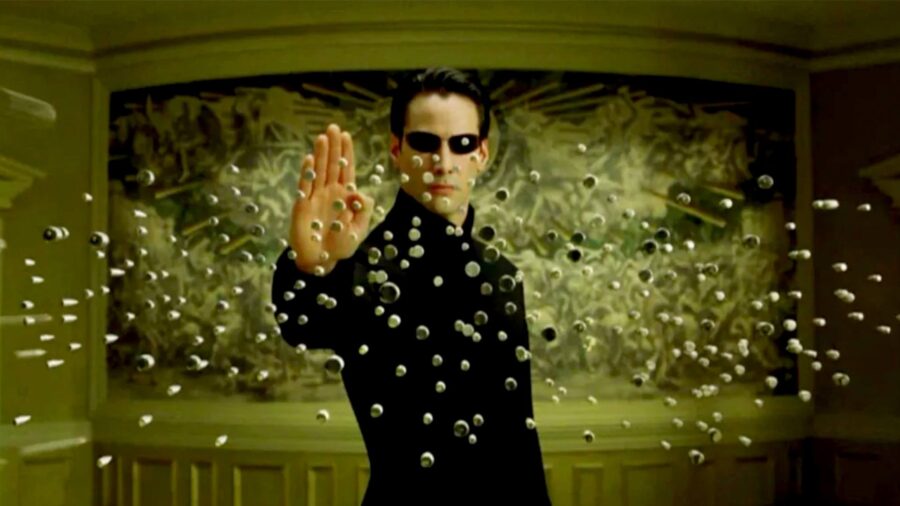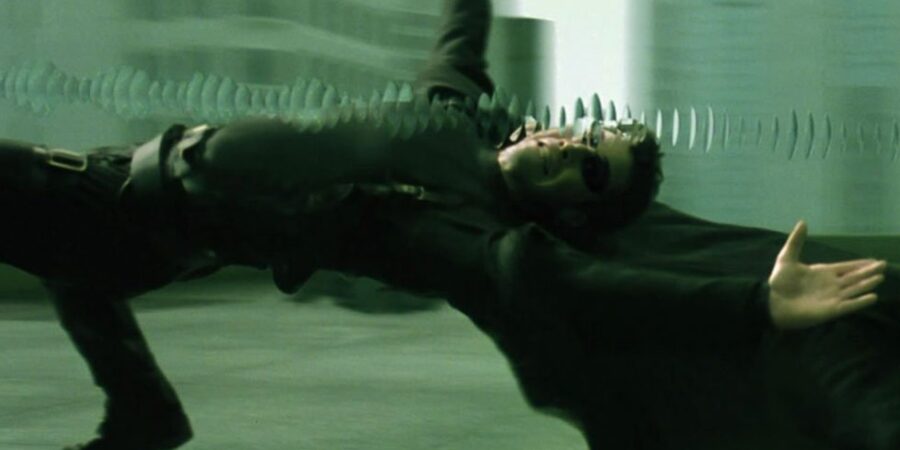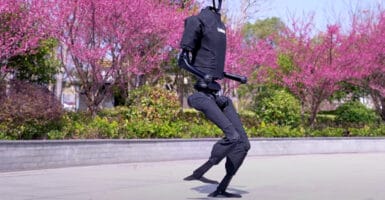The Matrix Bullet Time Is Real: Time Slows Down When You Move

After being used to great effect in The Matrix movies, the slow-motion “bullet time” effect has been used in countless other films and games.
While bullet time quickly became overused to the point of exhaustion, using slow-motion effects to suggest super-speed, heightened awareness, or amped-up reflexes can be incredibly effective if used right.
As it turns out, however, our brains provide an effect very similar to bullet time, seeming to slow things down as we prepare to move or react. Should we get ready to start moving like Keanu Reeves as Neo in a fight against Agent Smith (any version of him)? Well, probably not, but the finding is cool nonetheless.
As reported by Discover Magazine, new experiments by Nobuhiro Hagura at University College London demonstrated that, like in bullet time, the world really does seem to move slower as our bodies prepare to make a movement.
During the bullet time experiments, volunteers were asked to press a button while a white disc was visible on a screen, which would eventually be replaced by a hollow target.

In some cases, the test subjects were told to release the button and touch the target when it appeared. In others, they were told to continue holding down the button.
When asked how long the white disc stayed on the screen compared to the previous trials, the volunteers who were preparing to release the button and touch the target described the disc as staying up longer.
Hagura also ruled out the possibility that the subjects tasked with touching the target were more excited and therefore faster to react. When he ran a variation of the bullet time experiment where subjects were asked to name a letter that popped up, they didn’t report any time dilation.
The scientists say that’s because their body was preparing to react but not preparing to actually move. Presumably, the time-slowing, bullet time effect can be traced back to the fight-or-flight reactions of our ancestors: a hunter preparing to lose an arrow at his prey, for instance.
This bullet time test results suggest that when a person is preparing to move, as opposed to actually moving, our brains speed up our ability to process information. The article also makes the comparison of a batter preparing to swing at the ball; players have described the effect before, where the ball seems to go into slow-motion somewhat as it flies toward them.
It seems that our brains have a natural ability to perceive time as slowing down when we are preparing to make a physical movement or reaction. Could this bullet time feature be an evolutionary adaptation to enhance our ability to react quickly in dangerous situations? It sure seems like it.
Again, understand that we aren’t doing this to the level seen in The Matrix or other movies, but the implication there is just taken to the furthest logical conclusion. Neo and company could “see” the movements well in advance, therefore moving way faster.
Now, let’s just figure out if we are actually in the Matrix. That’s the next puzzle to solve.












